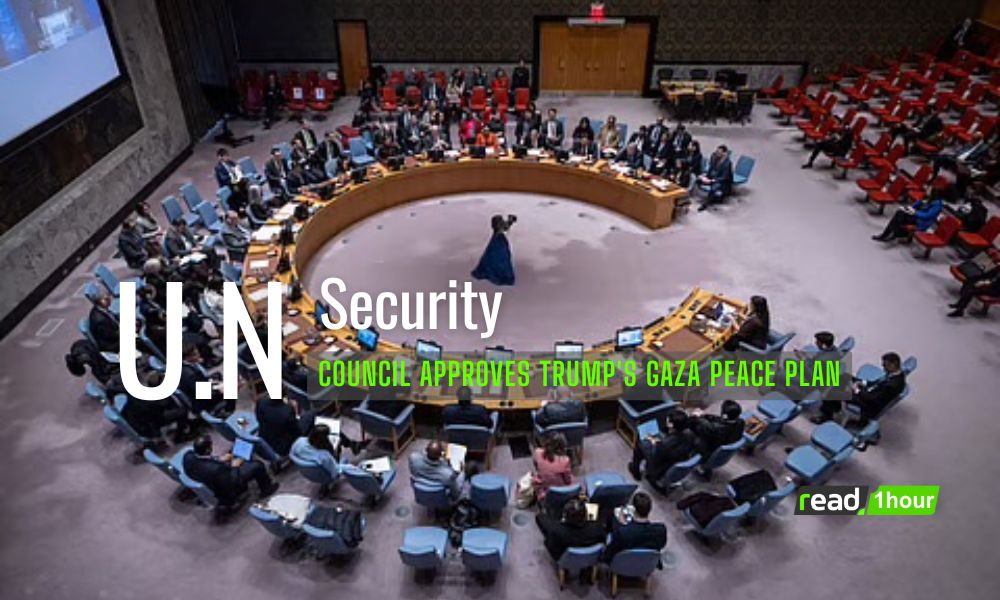UN Security Council Backs Trump’s Controversial Gaza Peace Plan Proposal
UN Security Council approves Trump’s Gaza peace plan, aiming for ceasefire, humanitarian aid, and renewed Middle East negotiations.
In a landmark decision with global implications, the United Nations Security Council has officially approved Donald Trump’s Gaza peace plan, marking one of the most significant diplomatic developments in the ongoing Middle East conflict. The resolution, which passed with a majority vote, aims to establish a long-term ceasefire, humanitarian corridors, and a new negotiation framework involving Israel, Palestinian leaders, and international partners.

The approval comes after months of intense debate, pressure from global powers, and behind-the-scenes negotiations led by U.S. diplomats. Supporters of the plan argue that it presents a realistic path toward reducing violence and stabilizing the region. Critics, however, warn that the proposal may favor certain political interests and could face resistance on the ground.
According to the resolution, the peace plan includes three major components:
- Immediate humanitarian relief for Gaza, including expanded aid shipments and medical support.
- A monitored ceasefire, enforced through international observers and regional security partners.
- A renewed political dialogue, bringing Israeli and Palestinian officials back to the negotiation table under revised terms.
Trump hailed the decision as a “historic victory for peace,” emphasizing that the plan focuses on humanitarian needs while also addressing broader regional security challenges. His statement claimed that the plan was designed to “end endless conflict and bring hope to millions living under uncertainty.”
Reactions within the international community have been mixed. The United Kingdom, France, and Japan supported the plan, highlighting the urgent need for stability and civilian protection. Russia and China, though initially hesitant, voted in favor after amendments were added to guarantee Palestinian representation in future negotiations.
On the other hand, several human rights groups expressed concern about the implementation strategy. They warned that without transparent monitoring and equal political representation, the plan could face major obstacles. Analysts also noted that both Hamas and the Israeli government will need to demonstrate genuine commitment for the plan to succeed.
In Gaza, the reaction has been cautious. Many residents welcomed the promise of increased humanitarian aid but remain skeptical of political promises that have repeatedly failed in the past. Israeli officials offered guarded approval, stating that national security must remain a priority.
Keywords such as Gaza conflict, UN Security Council, Trump peace plan, Middle East negotiations, humanitarian ceasefire, and regional stability have surged in global search trends, reflecting the widespread interest in this development.
Diplomatic experts believe the next few weeks will be critical. Implementation teams from the UN, the U.S., Egypt, Qatar, and several European nations are expected to meet in Cairo to finalize logistical details. The success of the plan will depend on cooperation from all parties and the ability to maintain diplomatic pressure.
While the Security Council’s approval marks a major step forward, the road ahead remains uncertain. Yet for many civilians in Gaza, any progress toward peace offers a moment of long-awaited hope.
